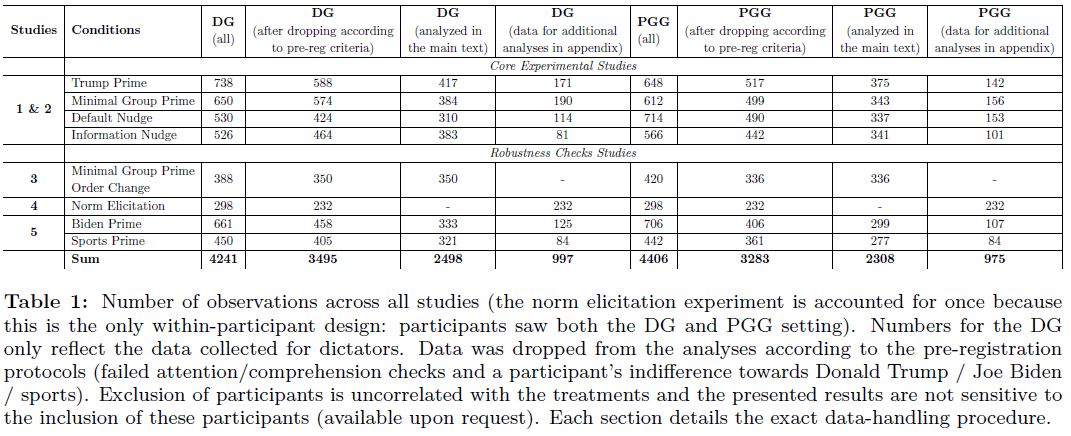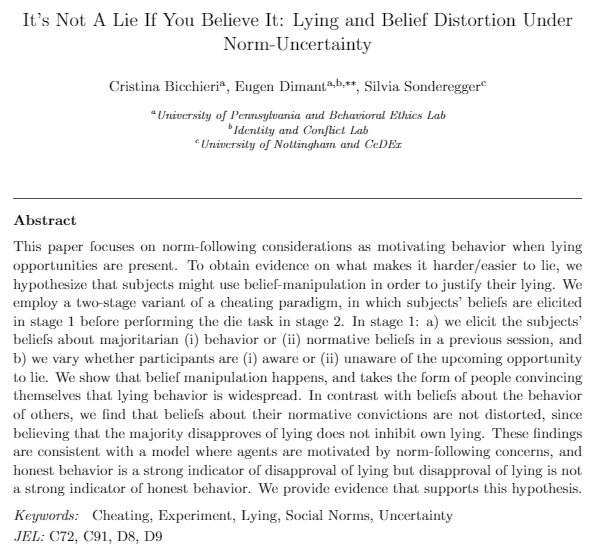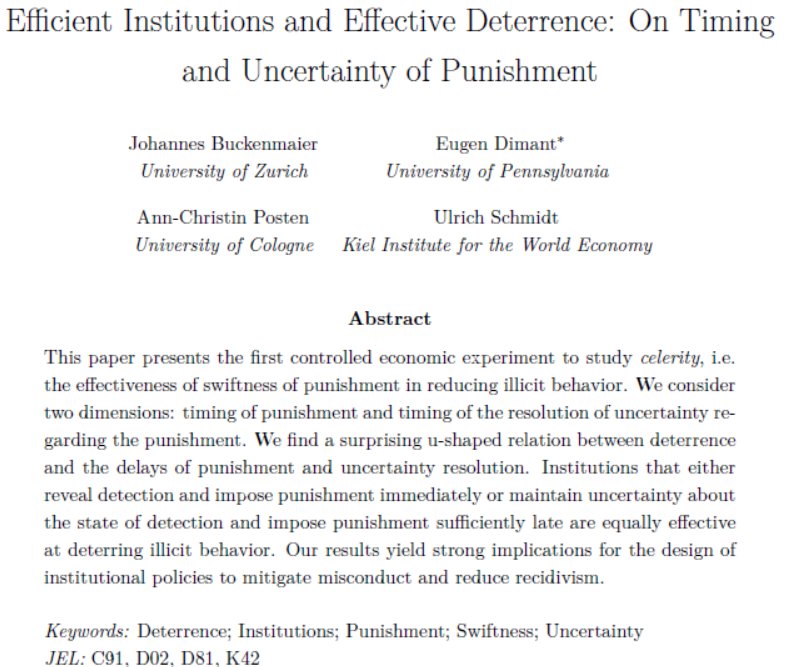
👣First publication of 2022 is✔️
We show when & how social #norm compliance erodes over time + the role that group #identity plays in mitigating it
Paper: doi.org/10.1016/j.geb.…
Results in🧵👇
👀@jayvanbavel @CassSunstein @BrendanNyhan @eckelcc @RFisman @erezyoeli #EconTwitter
We show when & how social #norm compliance erodes over time + the role that group #identity plays in mitigating it
Paper: doi.org/10.1016/j.geb.…
Results in🧵👇
👀@jayvanbavel @CassSunstein @BrendanNyhan @eckelcc @RFisman @erezyoeli #EconTwitter
https://twitter.com/eugen_dimant/status/1464300988991422470

Apologies, the DOI link seems not to be active just yet
Link that works: sciencedirect.com/science/articl…
Link that works: sciencedirect.com/science/articl…
https://twitter.com/eugen_dimant/status/1468998583697424395?s=20
A few interdisciplinary scholars who work on topics related to social norms & identity:
@_alice_evans @page_eco @RobbWiller @MicheleJGelfand @m_serra_garcia @silvia_saccardo @katy_milkman @angeladuckw @DinaPomeranz @ValerioCapraro @JohnHolbein1 @ylelkes @NeelaSaldanha @seema_econ
@_alice_evans @page_eco @RobbWiller @MicheleJGelfand @m_serra_garcia @silvia_saccardo @katy_milkman @angeladuckw @DinaPomeranz @ValerioCapraro @JohnHolbein1 @ylelkes @NeelaSaldanha @seema_econ
https://twitter.com/eugen_dimant/status/1468998583697424395
A few more interdisciplinary scholars who work on norms-/identity-related topics & might find the results👇🏻interesting:
@alineholzwarth @DG_Rand @guygrossman @CFCamerer @LeahRosenzweig @DAycinena @mc_villeval @chtraxler @ElizabethLinos @PaulvanLange @AnneKaring @NCKobis @cp_roth
@alineholzwarth @DG_Rand @guygrossman @CFCamerer @LeahRosenzweig @DAycinena @mc_villeval @chtraxler @ElizabethLinos @PaulvanLange @AnneKaring @NCKobis @cp_roth
https://twitter.com/eugen_dimant/status/1468998583697424395
• • •
Missing some Tweet in this thread? You can try to
force a refresh









